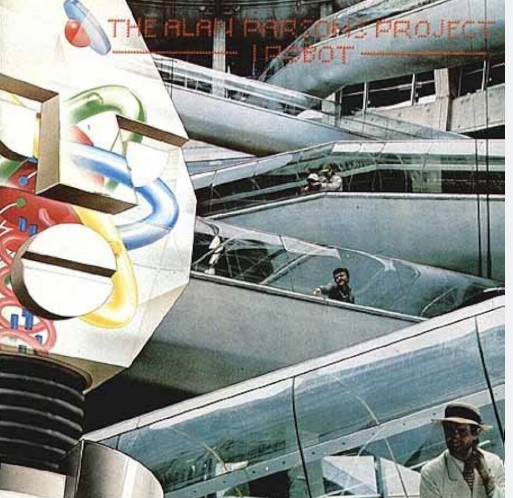The Alan Parsons Project’s I Robot Reissue: A 48-Year Celebration of Sci-Fi Prog Rock Mastery

On October 17, 2025, The Alan Parsons Project’s seminal 1977 album I Robot will be reissued in a variety of formats, including a lavish five-disc Super Deluxe box set, CD, vinyl, and exclusive colored vinyl editions, marking a triumphant celebration of its 48th anniversary.
This reissue, remastered at the legendary Abbey Road Studios, not only revives a classic rock and progressive rock masterpiece but also introduces new generations to its futuristic soundscapes and thought-provoking themes.
For fans of classic rock, this release could be a must-have. It’s packed with a whopping 70 bonus tracks, surround sound mixes, and rare content that deepens the legacy of an album inspired by sci-fi author Isaac Asimov’s robot stories.
Creation of I Robot
Released in June of 1977, I Robot was The Alan Parsons Project’s second album, following their 1976 debut Tales of Mystery and Imagination. Conceived by producer-engineer Alan Parsons and songwriter Eric Woolfson, the album was recorded at Abbey Road Studios between December 1976 and March 1977.
Parsons, fresh from his superb engineering on Pink Floyd’s Dark Side of the Moon and The Beatles’ Abbey Road, brought his studio wizardry to craft a polished yet still experimental sound.
Woolfson, a gifted composer, drew inspiration from Asimov’s I, Robot short story collection, exploring themes of artificial intelligence, human-machine relationships, and existential questions—decades before AI became the cultural buzzword it is today.
The album’s creation was a collaborative effort, featuring a rotating cast of seasoned session musicians and vocalists, including Ian Bairnson (guitar), David Paton (bass), Stuart Tosh (drums), and vocalists like Allan Clarke and Steve Harley. Tracks like “I Wouldn’t Want to Be Like You” (sung by Lenny Zakatek) blended funky grooves with sci-fi synths, while “Breakdown” (with Allan Clarke) delivered anthemic drama. The instrumental “Nucleus” showcased Parsons’ knack for cinematic soundscapes, and “Day After Day (The Show Must Go On)” offered haunting introspection.
The album’s production was groundbreaking for its time, using multitrack recording and early synthesizer technology to create a lush, layered sound that bridged prog rock, pop, and electronic music. Despite its ambitious concept, I Robot was a commercial success, peaking at No. 9 on the Billboard 200 and selling over 2 million copies worldwide by 1980. Its lead single, “I Wouldn’t Want to Be Like You,” hit No. 36 on the Billboard Hot 100, becoming a radio staple.
The album’s blend of accessible melodies and thought-provoking themes resonated with fans of Pink Floyd, Yes, and Emerson, Lake & Palmer (guilty as charged!), cementing The Alan Parsons Project as prog rock innovators.
Historical Impact
I Robot arrived during a golden era for progressive rock, when bands were pushing boundaries with concept albums and studio experimentation. Its loose adaptation of Asimov’s stories—focusing on robots’ ethical dilemmas rather than a literal retelling—struck a chord in a world grappling with technological advancement.
The 1970s spawned the early signs that led to the rise of personal computers and early AI research, making the album’s themes especially prescient. Tracks like “I Robot” (the instrumental opener) and “Some Other Time” explored humanity’s uneasy relationship with machines, a topic that influenced later artists like Kraftwerk and Radiohead.
The album’s production set an impressively high bar for studio craft. Parsons’ use of tape loops, vocoders, and orchestral arrangements anticipated the electronic and new wave movements of the 1980s. Its influence extended to film soundtracks, with I Robot’s cinematic quality inspiring composers like Vangelis. The album’s success also solidified The Alan Parsons Project’s unique model—a studio-based “project” rather than a traditional touring band—paving the way for acts like Daft Punk, who prioritized studio creativity over live performance.
Critics praised I Robot for its accessibility compared to denser prog rock albums. Rolling Stone called it “a dazzling display of studio artistry,” while Billboard noted its “melodic hooks and futuristic vision.” It earned a Grammy nomination for Best Engineered Album, Non-Classical in 1978, underscoring Parsons’ technical prowess. For classic rock fans, I Robot remains a bridge between the genre’s raw energy and the cerebral ambition of prog, appealing to both heart and mind.
The 2025 Reissue: A Treasure Trove for Fans
The 2025 reissue, announced by The Alan Parsons Project’s official X account (TheOfficialAPP) on August 6, 2025, is a love letter to fans, available in multiple formats: a 4CD/2LP/Blu-ray Super Deluxe box set, standard CD, black vinyl, clear vinyl, and a Burning Shed-exclusive red vinyl. The Super Deluxe set, limited to 5,000 copies (with the first 500 signed by Alan Parsons), is the centerpiece, featuring:
- Four CDs: The original album remastered, plus 70 bonus tracks, including unreleased demos, outtakes, and rough mixes. Highlights include early versions of “I Wouldn’t Want to Be Like You” and a previously unheard vocal take of “Breakdown.”
- Two LPs: A half-speed mastered 45rpm vinyl cut at Abbey Road for superior sound quality, capturing the album’s dynamic range.
- Blu-ray: New stereo, 5.1, and Dolby Atmos mixes by Alan Parsons, plus rare video content, such as behind-the-scenes studio footage from 1977.
- Book: A 60-page hardcover with essays, rare photos, and liner notes by Parsons and Woolfson’s estate, offering insights into the album’s creation.
Relevance Today
In 2025, I Robot’s themes feel more relevant than ever. With AI technologies like ChatGPT and autonomous robots dominating headlines, the album’s questions about machine autonomy and human identity resonate more deeply that they did in 1977. Tracks like “Genesis Ch.1 V.32” ponder the spiritual implications of technology, a topic echoed in today’s debates about AI ethics. The album’s influence persists in artists like Muse, whose Simulation Theory album nods to I Robot’s aesthetic, and in sci-fi soundtracks like Blade Runner 2049.
The reissue taps into the vinyl revival, a trend marked by a 200 percent increase in classic rock vinyl over the past five years. Streaming platforms report millions of monthly streams for “I Wouldn’t Want to Be Like You,” driven by Gen Z discovering the album via social media. The reissue’s timing aligns with renewed interest in prog rock, with festivals like Cruise to the Edge featuring Parsons’ live performances in 2022.
Why It Matters for Classic Rock Fans
The I Robot reissue is a chance to rediscover a classic rock gem that blends accessibility with innovation. The Super Deluxe set offers unparalleled value, with its wealth of unreleased material and immersive mixes, while the vinyl editions cater to collectors.
The album’s legacy—merging prog rock’s ambition with pop’s catchiness—makes it a cornerstone of the genre, alongside Pink Floyd’s Wish You Were Here or Genesis’ The Lamb Lies Down on Broadway.
To celebrate, fans can pre-order via The Alan Parsons Project’s official site or Burning Shed, with prices ranging from $20 (CD) to $150 (Super Deluxe). Whether you’re a longtime fan or a new listener, this reissue proves I Robot’s machine heart still beats strong in 2025.




